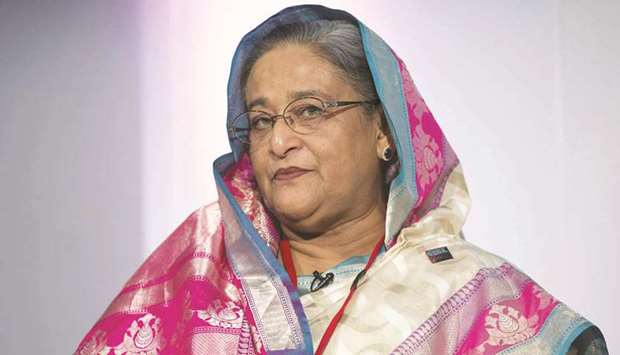They are 1971 freedom fighter and organiser Mazeda Shawkat Ali, journalist Mahfuza Khatun Baby Moudud (posthumous), artiste Suraiya Rahman, writer Shobha Rani Tripura, and social worker Masuda Faruk Ratna.
The government introduced the award in 1995 and named after Begum Rokeya, a pioneer of women’s rights movement in the undivided Bengal who was a leading feminist writer and social worker during the early 20th century and mostly famous for her efforts for gender equality and female education.
Hasina urged women to discover their own potential and value to achieve their goals.
“Women always think how they can flourish their merit and potential … they have to take their own initiatives, they must not depend on others. There’ll be obstacles and hurdles, but women have to move forward overcoming all those,” she said.
The PM said, “It’s not possible to build a sustainable society keeping the women aside,” she said.
Hasina said in a society where women constitute half of the total population that cannot go a long way without the contributions of women. “So, all are needed equally to build and develop a society properly.”
Recalling the great role played by women during the Liberation War, Hasina said Father of the Nation Bangabandhu Sheikh Mujibur Rahman had taken massive steps for women’s emancipation and their political, social and economic development alongside rehabilitating the mothers and sisters who suffered immense brutalities during the Liberation War.
Following the footprint of Bangabandhu, Hasina said the government paid special attention to the development of the poor and uncared women of society to expedite their empowerment.
She mentioned that Begum Rokeya had dreamt of a society where the women would be magistrates, judges and barristers. “Today, women are now serving the country holding those posts.”

